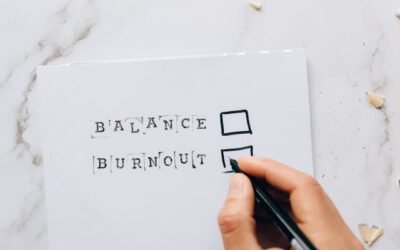
How Homeopathy and Yoga Complement Stress Reduction
Here’s an overview of how these two practices can work in synergy to help manage stress effectively:
Homeopathy for Stress Reduction
- Individualized Remedies: Homeopathy focuses on the individual’s experience of stress, tailoring remedies to the person’s specific symptoms and emotional state. By addressing the root cause of stress, homeopathy aims to restore balance within the body.
Remedies such as Arsenicum album, Argentum nitricum, and Kali phosphoricum are often used for various manifestations of stress, such as restlessness, anxiety, and mental exhaustion. - Non-Invasive Approach: Homeopathic remedies are prepared in highly diluted forms, which makes them gentle and generally non-toxic, posing minimal risk of side effects.
- Holistic Healing: The goal of homeopathy is to stimulate the body’s own healing response. By treating the individual holistically, not just focusing on stress but taking into account overall health, homeopathy may enhance the body’s resilience to stress.
Yoga for Stress Reduction
- Breathing Techniques (Pranayama): Yoga includes practices like deep abdominal breathing, alternate nostril breathing (Nadi Shodhana), and the cooling breath (Sheetali), which calm the nervous system and contribute to a reduction in overall stress levels.
- Physical Postures (Asanas): Yoga asanas are designed to release physical tension, improve circulation, and promote flexibility, which can help alleviate the symptoms of stress. For instance, forward bends can be calming, while backbends are energizing yet soothing for the nervous system.
- Meditation and Mindfulness: Yoga encourages present-moment awareness and meditation, which can help interrupt patterns of ruminative or anxious thoughts—common contributors to stress.
- Balance and Harmony: Regular yoga practice aims to balance the body, mind, and spirit, promoting an inner sense of harmony that can be incredibly beneficial in managing stress.
Complementary Synergy
When combined, homeopathy and yoga can work together to create a potent and comprehensive approach to stress management:
- Homeopathic remedies can help alleviate the immediate psychological symptoms and imbalances that exacerbate stress, allowing individuals to engage in yoga practices more effectively.
- Yoga can reinforce the benefits of homeopathic treatment by improving body awareness and self-regulation, which can make the individual more attuned to subtle shifts in their condition and responsive to homeopathic remedies.
- The relaxation and detoxification effects of yoga can potentially enhance the efficacy of homeopathic remedies by creating a more conducive state of being for the body to heal and rebalance itself.
- Both practices encourage a deepened perception of the body-mind connection, leading to increased self-awareness, which is essential in identifying stress triggers and responses.
Implementing a Combined Approach
To incorporate both homeopathy and yoga into a stress reduction plan, it could be beneficial to:
- Consult a Professional: Speak with a qualified homeopath to find the correct remedy for your unique stress manifestations and a certified yoga instructor for a tailored yoga routine.
- Integrate Practices Mindfully: Start with gentle yoga routines, focusing on stress-reducing techniques, and take homeopathic remedies as advised by a professional.
- Monitor Changes: Keep a journal to observe how your stress levels respond to this integrated approach.
- Adapt as Needed: Be willing to adjust your homeopathic remedies and yoga practice based on changes in your stress levels or life circumstances.
Conclusion:
Homeopathy and yoga offer complementary holistic approaches toward managing stress, emphasizing individualized treatment and overall wellbeing. Homeopathy can specifically address personalized symptoms and emotional imbalances related to stress, while yoga provides physical and mental disciplines designed to enhance bodily awareness, improve physiological functions, and promote calmness. Together, they create a synergistic effect that not only targets the mechanism of stress but also enhances the body’s natural resilience.
Recent Post Articles
Approaches to Preventing Burnout: Homeopathy for Resilience
In the contemporary work environment, burnout is becoming increasingly prevalent, characterized by chronic…
Remedies for Managing Grief and Loss
Grief and loss are profound emotional experiences that impact individuals uniquely, leaving a mark…
The Future of Cancer Care: How AI and Machine Learning Are Revolutionizing Treatment
Advancements in technology, particularly Artificial Intelligence (AI) and Machine Learning (ML), are …





